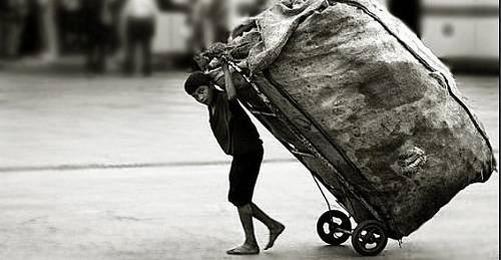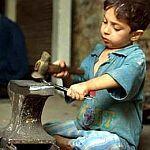Not only women organizations in Turkey were are being outraged about the "Draft Bill on the Amendment of Certain Laws Related to the Primary Education and Training Law (No. 222)".
The law proposal was prepared by Nurettin Canikli, Deputy Chairman of the Justice and Development Party (AKP) Faction, and other AKP deputies. It says that students "who finished the first stage of primary education will have the possibility to be trained as apprentices". That way, a legal basis would be provided to have children who finished primary school - aged eleven - working as apprentices.
The Association for Support and Education for Women Candidates (KA.DER), the Turkey Civil Society Steering Committee of CEDAW, the Flying Broom Women's Communication and Research Association and the Women's Human Rights-New Solutions Association were just three out of many women organizations that criticized the law proposal. In the media, the proposal is called "4+4+4" because it foresees to split the now compulsory eight-year school education into two sections of four years plus four years at secondary school.
The women organizations claimed that this model was a step backwards. They also deemed it especially problematic with regard to the right to education of girls.
Even though the proposal seems to be increasing the duration of compulsory education from eight to twelve years, in fact it actually reduces it to four years, the organizations warned.
Girls will be drawn away from education
"After four years as the first stage children will be left out of the formal education. The next four years as the second section will be connected to distant learning. This regulation means that boys become apprentices and girls should stay at home and continue with distant learning. This is unacceptable", they said in a press release signed by 31 organizations and individuals.
The women organizations pointed to the following key points:
* It paves the way to forced underage marriages of girls.
* The duration of compulsory education which has been at least five years since 1930 will be decreased to four years.
* Girls will be drawn away from education after having finished the first four years of primary education.
* The Council of Ministers will decide on which child will be going to which branch of which vocational school. This prepares the ground for raising stereotype people.
Increase of Child Labour
bianet asked Assoc. Prof Ferdi Tanır, member of staff of the Çukurova University School of Medicine Department of Public Health, how the 4+4+4 model would affect the situation of child labour in Turkey.
Tanır expects the number of child workers to increase with the new proposal. Even though he appreciated the extension of compulsory education to twelve years, he underlined that this duration of education had to be designed as one period without interruption.
"[The extension to] twelve years will be a good decision but breaking the system down into different stages makes it much worse than before".
Tanır stressed that with the new proposal children will in fact not be obliged to continue school. In addition, the age for apprentices will be decreased. Both amendments lead up to child labour, Tanır warned. "Reducing the age limit of apprentices to eleven years of age is going to play into the hands of those who are working illegally", he said.
Positive effect of eight year primary education
Tanır indicated that the current duration of eight-year primary school without interruption had a positive effect on the number of child workers that decreased from 1.5 million to about 900,000. A severe decrease in numbers was also registered for children working on the street and in seasonal agricultural work.
Labour is not a children's business
Tanır referred to the Universal Declaration on the Rights of the Child and said that it recognizes every person younger than 18 years of age a child because scientifically the growth and development of a person is not completed before that age.
"Until they are 18 years old, people should not be in an environment that is bearing risks for them such as a working environment. This is where the notion against child work is rooted".
"In a job expected to be done by adults, work and everything else is designed according to adults. Tools, instruments, desks and anything that is being used was designed according to the use of adults", Tanır remarked. (YY/VK)

















